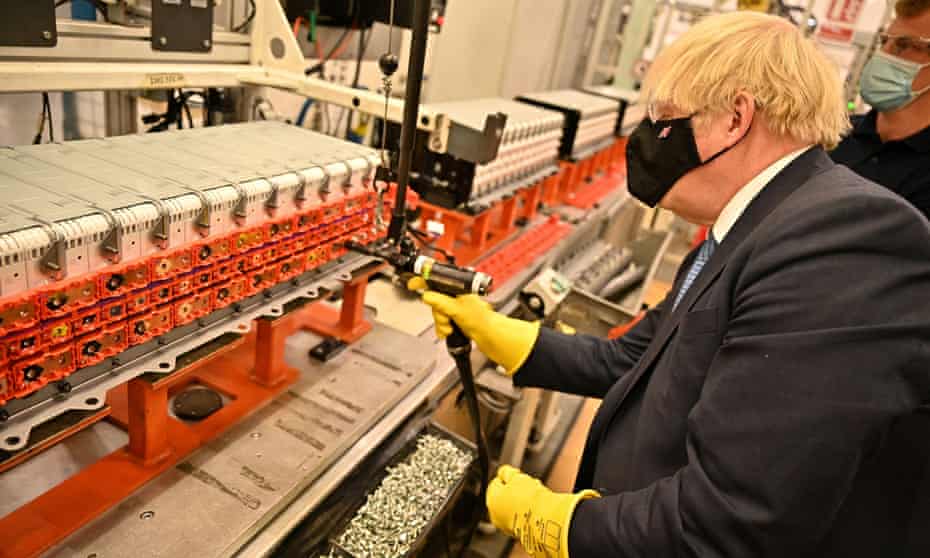UK battery ‘gigafactory’ plans huge expansion as electric car demand soars
Envision’s Sunderland plant produces batteries for the Nissan Leaf and other electric vehicles

The Chinese owner of the UK’s only large-scale battery factory has revealed plans for a big expansion that will put the plant in Sunderland among the biggest electric vehicle facilities in Europe.
Envision said annual capacity at the plant would eventually rise to 38 gigawatt hours (GWh), an increase from a previous plan of 11GWh that was announced in July as part of a supply deal for the Japanese carmaker Nissan’s Sunderland plant.
Battery companies are investing billions of pounds around the world in new facilities as they race to match the accelerating demand for electric vehicles.
Lei Zhang, the chief executive of Envision, said the Shanghai-based company was in talks with global carmakers about using the Sunderland plant, and another in France, to supply their car factories, in an interview with the Financial Times.
The Sunderland “gigafactory”, currently capable of annual output of 1.7GWh, was first opened in 2012 to build batteries for Nissan’s Leaf electric vehicle, which is manufactured next door. Nissan will build a crossover sports utility vehicle as a successor to the Leaf, which was for a long time the most popular battery electric vehicle on British roads until it was overtaken this year by the Model 3 from the US electric car pioneer Tesla.
Envision took ownership of the Sunderland factory in 2019 when it bought Nissan’s battery company. Zhang said the manufacturer, which also produces wind turbines, intended to list its battery business, a move that would allow it to fund its new plants.
A plant of 38GWh would be a significant step towards filling the gap in UK production. The UK-government-backed Faraday Institution has calculated that the UK will require annual battery output of about 140GWh a year by 2040 if it is to sustain a car industry of similar size after the transition away from internal combustion engines. Failure to secure gigafactories in the UK could lead to the industry shrinking by more than 100,000 jobs.
In the UK the only other publicly disclosed plan for further battery production is from Britishvolt, which hopes to produce 30GWh a year by 2027. The project is not yet fully funded, although the startup has received investment from Glencore, the metals trading company. Britishvolt is considering a stock market listing in London to raise capital.
Local politicians in the West Midlands have a separate plan to attract investment in a gigafactory at Coventry airport. They have secured pre-emptive planning permission for the site but no investor has yet committed.
Globally there are plans for 247 battery plants with a total output of more than 4,600 GWh, according to Benchmark Minerals, a data company. The industry is dominated by Asian companies, including China’s Contemporary Amperex Technology Ltd, South Korea’s LG and Japan’s Panasonic.
Europe and the US are generally regarded to be behind in producing car batteries. However, a wave of investment has swelled in Europe in recent years, including inward investment by Asian companies and startups such as Northvolt.